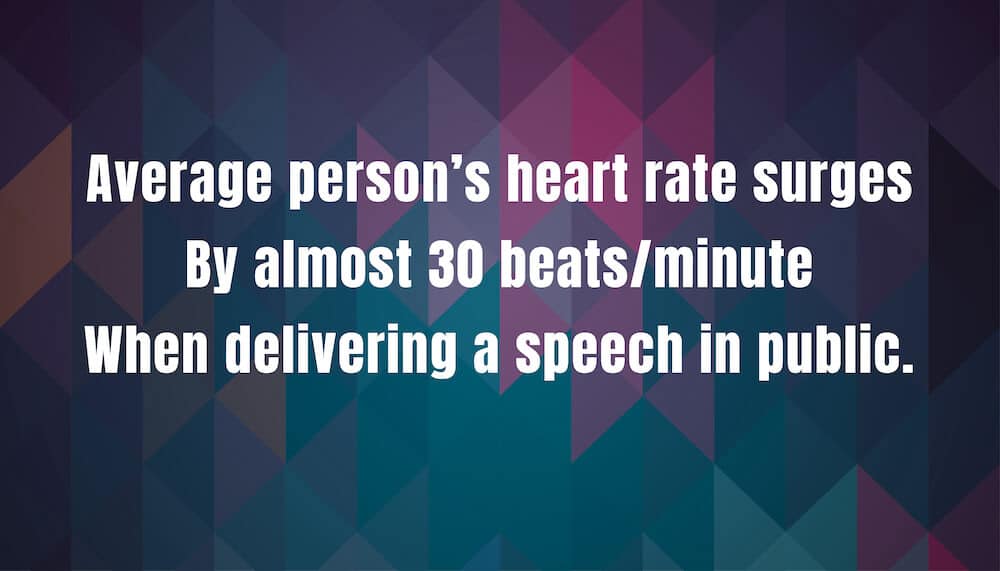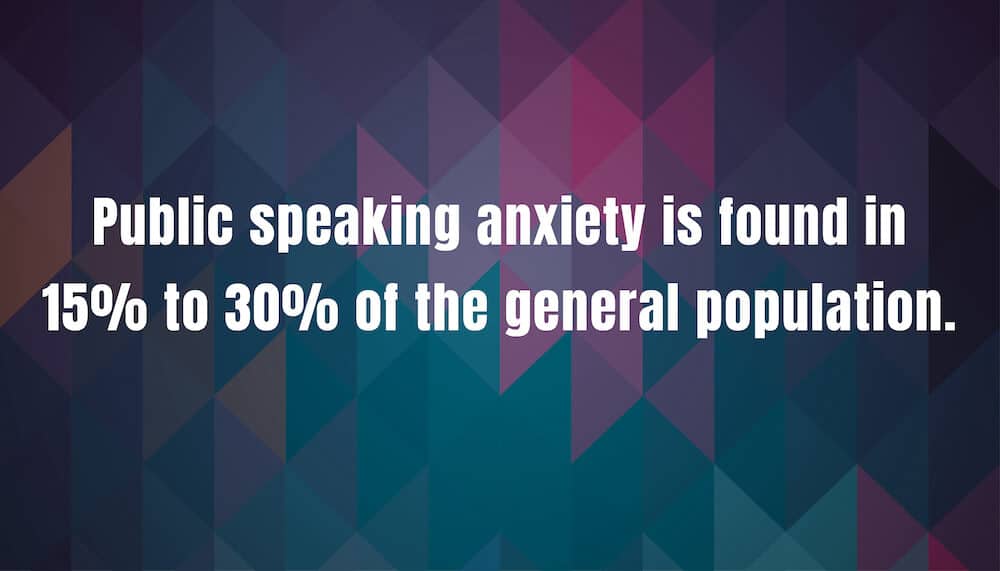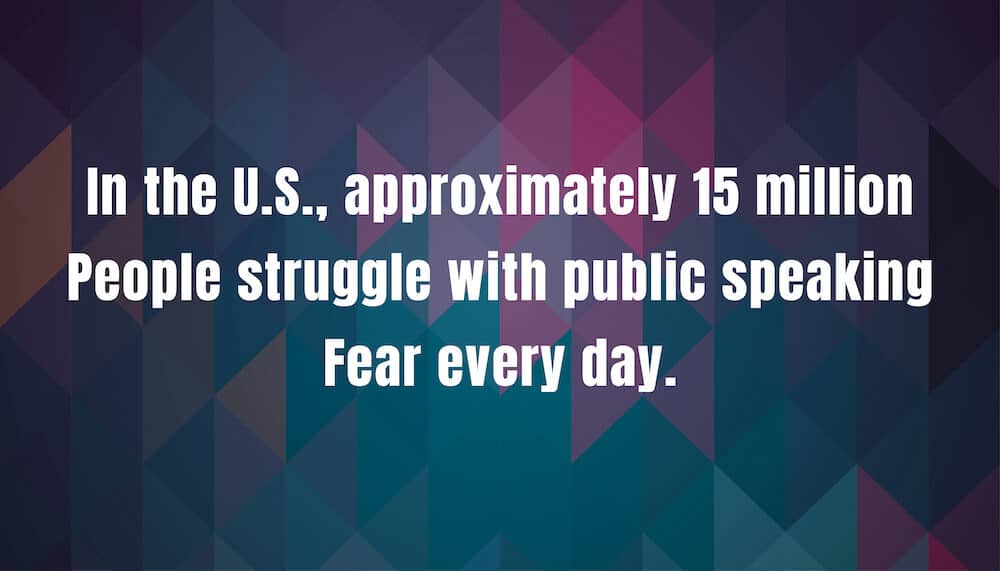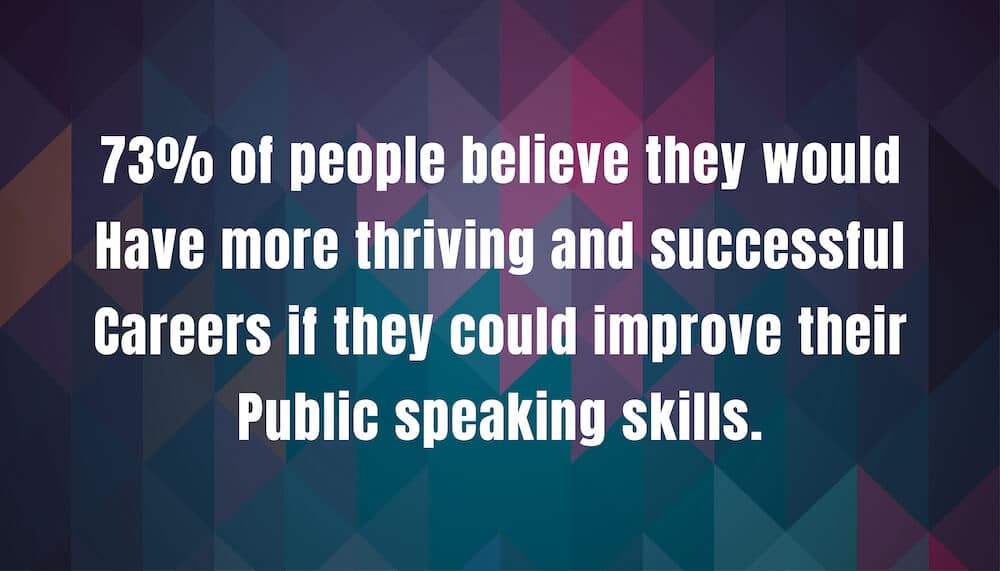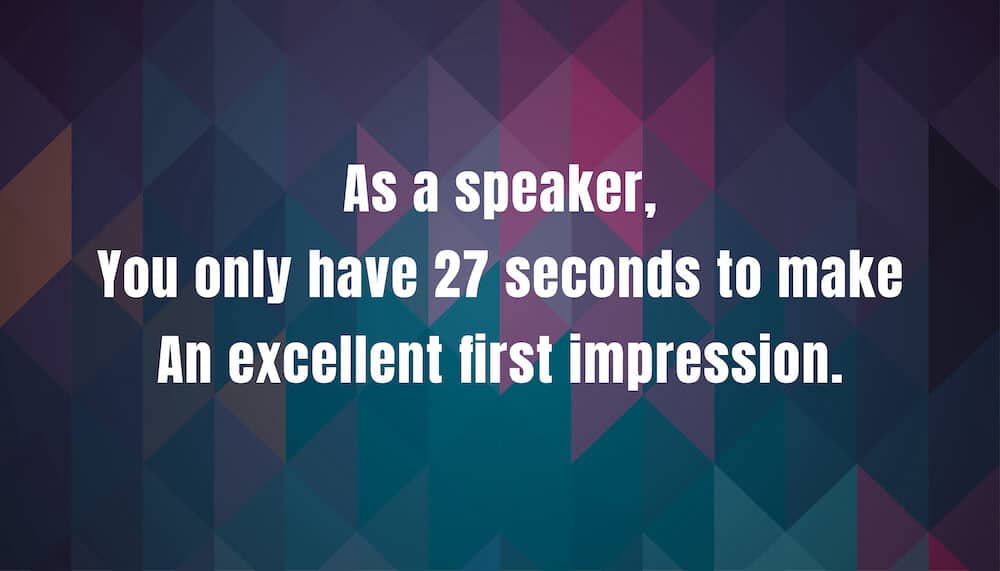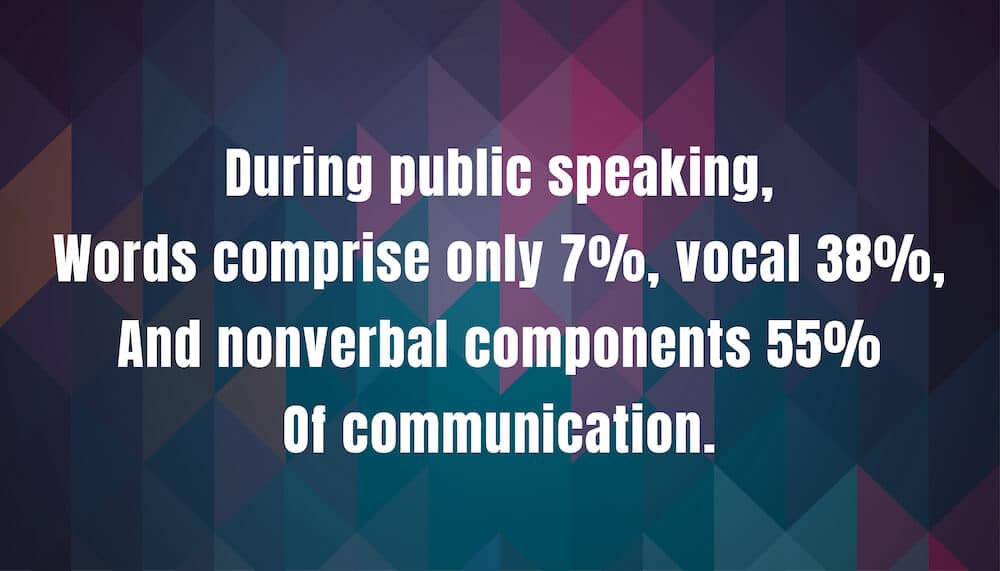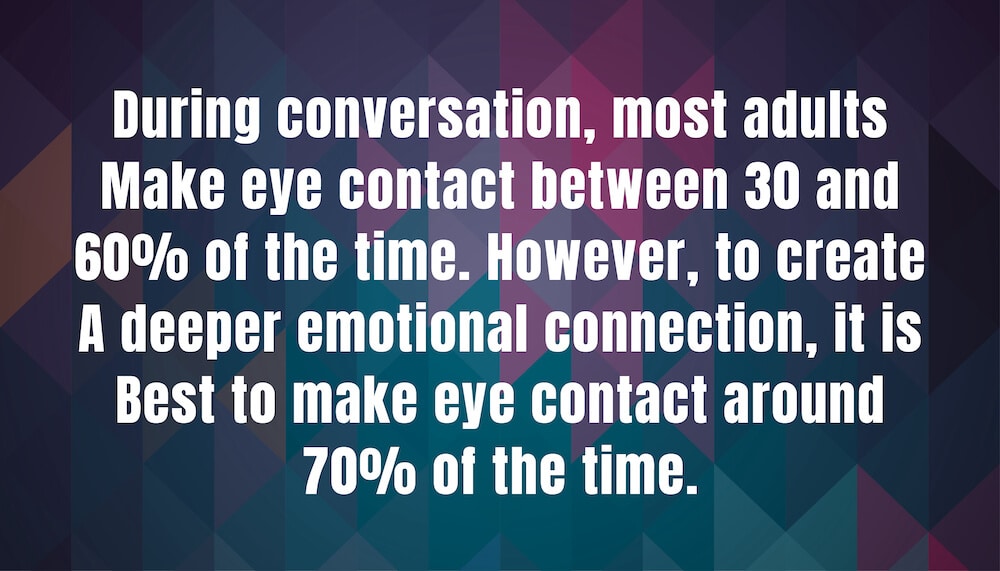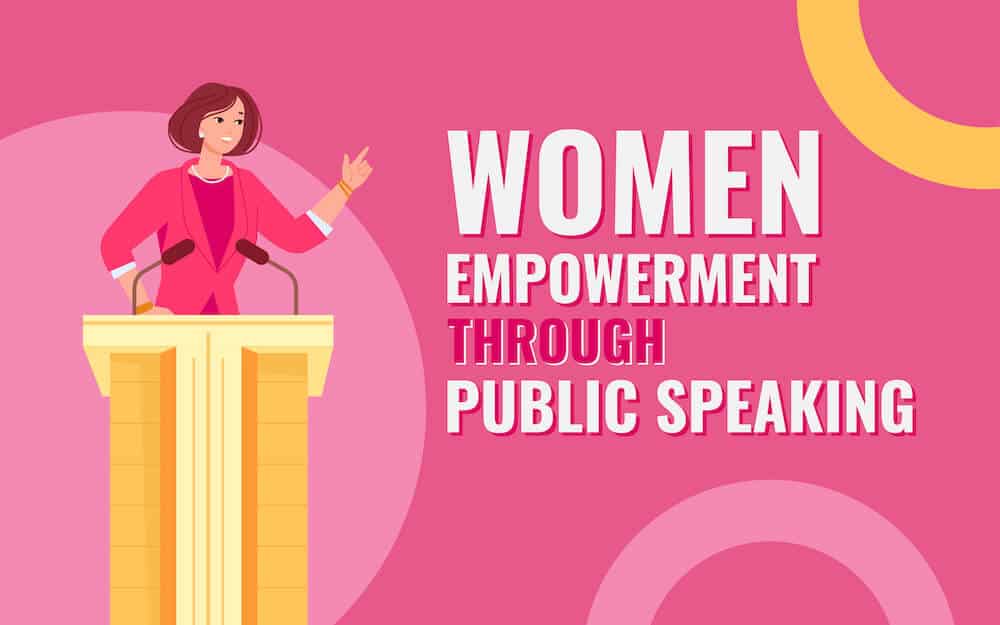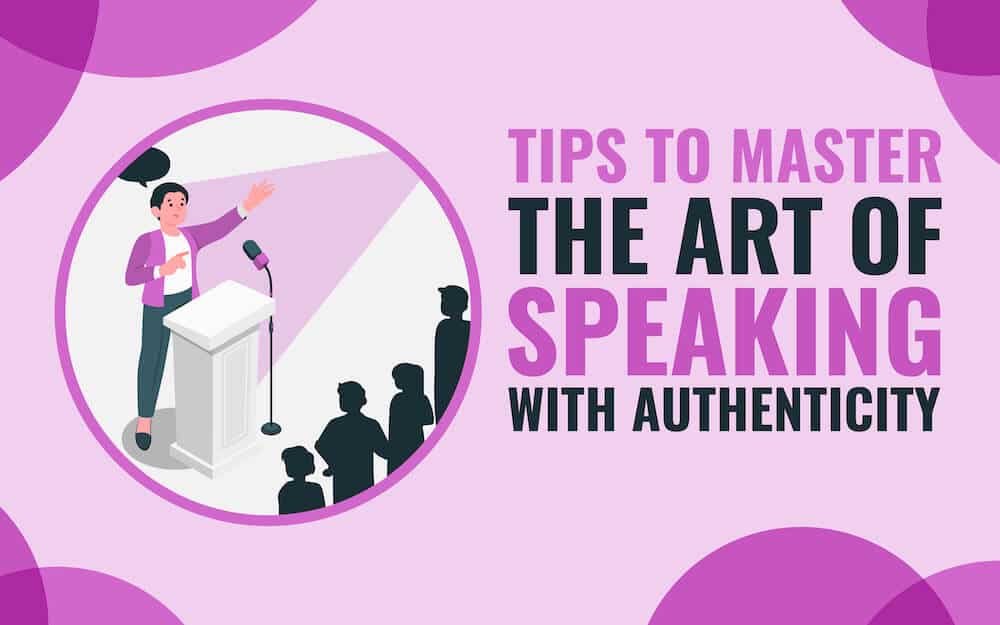
Does the mere thought of standing on a podium with a mic and addressing a mass audience make you nervous? Worry not; you are not alone! 85% of people break out in cold sweats when it comes to public speaking. Surprised?
In this article, we have compiled many compelling statistics about public speaking. These statistics reveal the fascinating story hidden behind the curtain of this interesting art form. Let’s dive in!
1. Public Speaking is the #1 Fear Among People
Did you know that most people fear public speaking more than death? According to a study, 85% of people experience nervousness when it comes to public speaking. Another study reveals that the average person’s heart rate surges by almost 30 beats/minute when delivering a speech in public.
Expert Tips:
You can replace your fear with confidence by following these tips:
- Do meticulous research and analysis to understand your audience better.
- Know your topic thoroughly and prepare responses to queries you feel the audience can likely ask.
- Use visual aids, videos, props, etc., to make it easy for the audience to comprehend and retain the information being shared.
- Relieve your anxiety by visualizing your success.
- Take 3-5 slow, deep breaths before walking on stage and during the speech to stay calm.
- Practice a lot to look at ease and sound natural on the stage.
2. People Can Do Anything to Avoid Presenting
In a survey, 20% of respondents said they would do almost anything to avoid presenting, including asking a colleague to present or pretending to be sick. In another survey, 5% of the employed adults said they would take a shot of alcohol, and 7% said they would take medicine to overcome public speaking anxiety before a big gig.
Expert Tips:
Avoiding presenting in public will only make your fear loom large, and in the long run, it will build up in your mind as a threat. Remember, you can conquer your fear only by facing it. So, feel free to pause, lose your place, or stumble during public speaking, as these little blunders make you more authentic.
Rehearse your speech many times in front of your friends, colleagues, family members, or people you are comfortable with. It will help you figure out flaws and improve them in advance, making you more confident on the big day.
3. Public Speaking Anxiety Affects Daily Activities
According to the National Institute of Mental Health reports, 40% of the population is affected by glossophobia (public speaking anxiety). One another source says public speaking anxiety is found in 15% to 30% of the general population. Up to 10% of sufferers report that PSA affects their education, work, and daily activities.
Expert Tips:
You can’t completely eliminate your public speaking anxiety; however, you can reduce and manage it with these tips:
- Speak up about your fear with your friend.
- Focus on positive thinking.
- Do deep, rhythmic breathing, aerobic exercises, and muscle relaxation exercises.
- Take 8 hours of sleep to ensure optimal performance on the presentation day.
- Eat a healthy diet, avoiding sweets, alcohol, and caffeine. However, don’t eat immediately before going on the stage.
4. Public Speaking Fear is Prevalent in Students, Too
In a survey, it was found that 61% of university students in the U.S. fear public speaking. In Finland, one out of every three students considers public speaking to be a severe problem for them.
According to the Personal Report of Public Speaking Anxiety (PRPSA), 5% of students (aged 18 to 25 years) fall under high levels, 19% under low, and 76% under moderate levels of public speaking anxiety.
The research found that students with public speaking anxiety have 25% internal fears and 75% external fears.
According to a study, 30% of fear among students was related to perceived attitudes from the audience, including judgment or no interaction from the audience. The 23% of fear was related to their inability to recall information/content during a speech.
Expert Tips:
Some level of discomfort with public speaking is obvious in students. However, avoidance is certainly not a good coping strategy.
You can start by exposing yourself to events where you need to speak in small groups, like group discussions, debates, etc. Gradually, your confidence will boost, and you will feel prepared to take up the next level of difficulty.
Teachers can also help students overthrow stage fright in the following ways:
- Encouraging students to acknowledge their stage fright and anxiety.
- Suggesting them ways to feel less overwhelmed and more in control.
- Reminding students that it is absolutely fine to make mistakes but it is also important to learn from those mistakes and grow.
- Assigning them subject-related projects and asking them to present them in class.
- Encouraging students to focus on content rather than their fear.
5. Public Speaking Fear Differs in Males and Females
According to a source, about 44% of women and 37% of men suffer from glossophobia.
Women mostly prefer face-to-face interaction over giving a public presentation. Women’s shyness from public speaking is difficult to do away with, as it results from deeply embedded social norms. (source)
Expert Tips:
Women can break barriers and attain success in their profession by mastering public speaking skills. Women themselves can ace this art by:
- Believing in the power of their voice and understanding that their perspectives are invaluable.
- Combining their outer brand and inner voice.
- Willingly participate as a speaker in corporate meetings and events.
Organizations can help power women speakers in the following ways:
- Encouraging female employees to participate in corporate events and industry forums.
- Providing them access to all resources and support to hone their public speaking skills.
6. People in Developed Countries Also Have a Fear of Public Speaking
If you think that people in only developing countries are afraid of speaking in public, you are absolutely wrong. The fact is – this fear is not confined to a specific region or country. According to a source, in the U.S., approximately 15 million people struggle with public speaking fear every day.
In developed countries, a strong emphasis is laid on individual achievement which increases fear of public speaking. This fear further gets intensified by the thought of being criticized, judged, and failed.
7. Even the Experienced Speakers Fear Public Speaking
According to a source, more than 90% of successful public speakers, at some point in their lives, have experienced public speaking anxiety.
Speakers of all levels of experience are susceptible to anxiety and fear when it comes to public speaking engagements. The reason could be any- challenging topics, high expectations, personal factors, audience response, etc. However, seasoned speakers know how to cope with this fear and nervousness and channel it into positive energy.
8. Public Speaking Impacts Career
Public speaking is a must-have skill to outshine in the competitive job market, land your dream job, and climb the career ladder.
Look at the following statistics that reveal public speaking can be instrumental in career growth –
- Today, 70% of jobs require public speaking.
- For undergraduate students, public speaking is an important skill to learn and practice to succeed in their education and careers. (source)
- According to a source, 73% of people believe they would have more thriving and successful careers if they could improve their public speaking skills.
- About 45% of individuals feel that their fear of public speaking hampers their career growth. (source)
- People who fear speaking in public make about 10% less salary per annum.
So, spend some time developing your public speaking skills to set yourself apart in the workplace.
9. First Impression is Crucial
A study found that 7 in 10 Americans (69%) form a first impression of somebody even before they speak. As a speaker, you only have 27 seconds to make an excellent first impression.
The initial few moments of your public speaking are extremely crucial. Based on how you begin your speech, the audience decides whether your talk is worth their attention and time. If you succeed in engaging the audience in those moments, you win half the battle.
Expert Tips:
- Clarify the purpose of your speech. It will help the audience build anticipation from the beginning.
- Based on your speech’s topic, choose an unconventional hook that binds the audience and leaves them mesmerized.
- Pair up this hook with a relevant visual to evoke their imagination.
10. Body Language Matters a Lot in Public Speaking
During public speaking, words comprise only 7%, vocal 38%, and nonverbal components 55% of communication. (source) (source)
Your body language reflects your state of mind and passion for the topic you are talking about and plays an important role in forging a connection with the audience. The below statistics confirm this-
a). Eye Contact:
When talking, if a speaker actively makes eye contact, they are judged to be more confident, believable, and competent. (source)
During conversation, most adults make eye contact between 30 and 60% of the time. However, to create a deeper emotional connection, it is best to make eye contact around 70% of the time. (source)
Maintaining eye contact with the audience for 4-5 seconds is recommended before looking away and repeating. (source)
b). Good Posture and Facial Expression:
Maintaining a good posture and using a strong voice, as well as different methods of hand gestures, facial expressions, and arm movements, significantly benefit public speeches. (source)
Facial expressions are an indispensable part of nonverbal human communication and say a lot about the intentions and emotional state of the speaker. (source)
c). Authenticity:
Authenticity matters in public speaking. The top 10% of authentic speakers were considered 1.3 times more persuasive and 1.3 times more trustworthy than the average communicator. (source)
Ensure your body language is apt when you address a mass audience to establish yourself as an authentic and credible speaker.
11. Public Speaking Skills Can Be Improved Through Training
In a survey, 95% of respondents confessed that public speaking fear can be overcome if they are provided with proper coaching, instruction, and counseling.
In a survey, 85% of respondents felt their public speaking skills would help them inspire others.
A study states that TED Talks are helpful and effective in improving students’ public speaking skills.
Expert Tips:
- To improve your public speaking skills, enroll yourself in an accredited training program.
- Carefully research and compare all the options based on the instructor, curriculum, accreditation, and testimonials to find the one that best suits your needs and goals.
- Don’t be a passive learner. Apply what you have learned in the training program in your next speech.
- The training program can’t make you a good speaker overnight; you need regular practice to make the most of these programs.
- Organizations should also make arrangements to train their employees in public speaking, considering this cost as an investment.
12. A Therapist Can Help You Improve Public Speaking Anxiety
In a research study, it was found that only 8% of people experiencing public speaking fear seek help from professional consultants to gain confidence.
Expert Tips:
The mild symptoms of public speaking anxiety can be alleviated by making changes in lifestyle, such as proper sleep, a healthy diet, and regular exercise.
In case you experience severe symptoms like shortness of breath, shaking, dizziness, etc., you must see a therapist who will help you overcome negative thoughts and behaviors through cognitive behavior therapy (CBT) and exposure therapy.
13. Different Factors Contribute to Public Speaking Fear
30% of fear among students was related to perceived attitudes from the audience, including judgment or no interaction from the audience. The 23% of fear was related to their inability to recall information/content during a speech. (source)
In a survey, 82% of respondents agreed that the audience size greatly impacts their nervousness level and performance on the stage.
Expert Tips:
Past failures, poor preparation, lack of experience, being judged, new audiences – there may be different factors that contribute to public speaking fear. Determine which factor haunts you and work a little extra to control/eliminate it.
The Wrap Up
The statistics in this article underscore the impact and importance of public speaking. Leverage these statistics to stay updated on emerging trends, embrace changes, and make a huge difference as a speaker.
